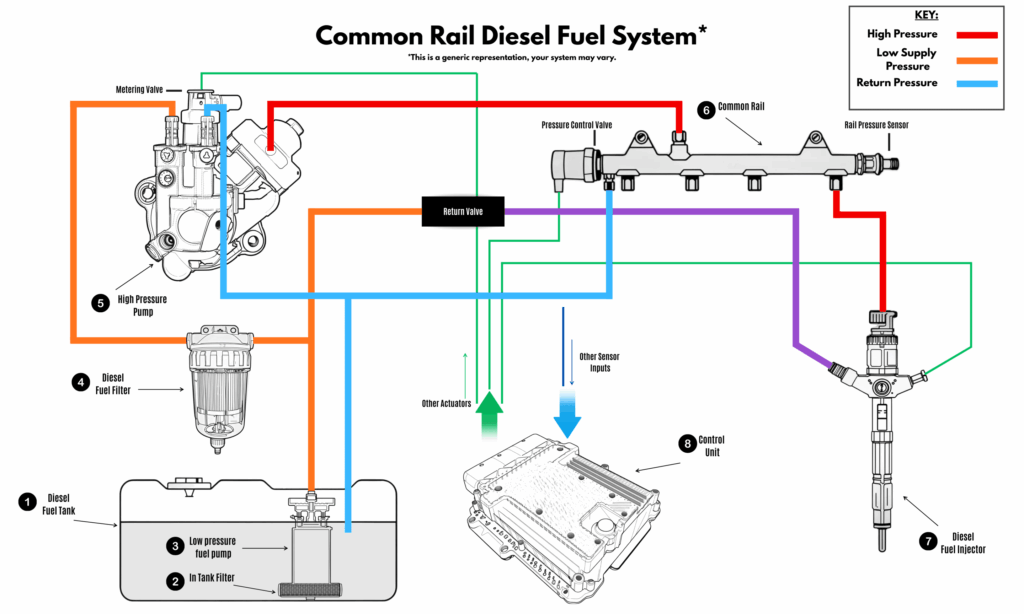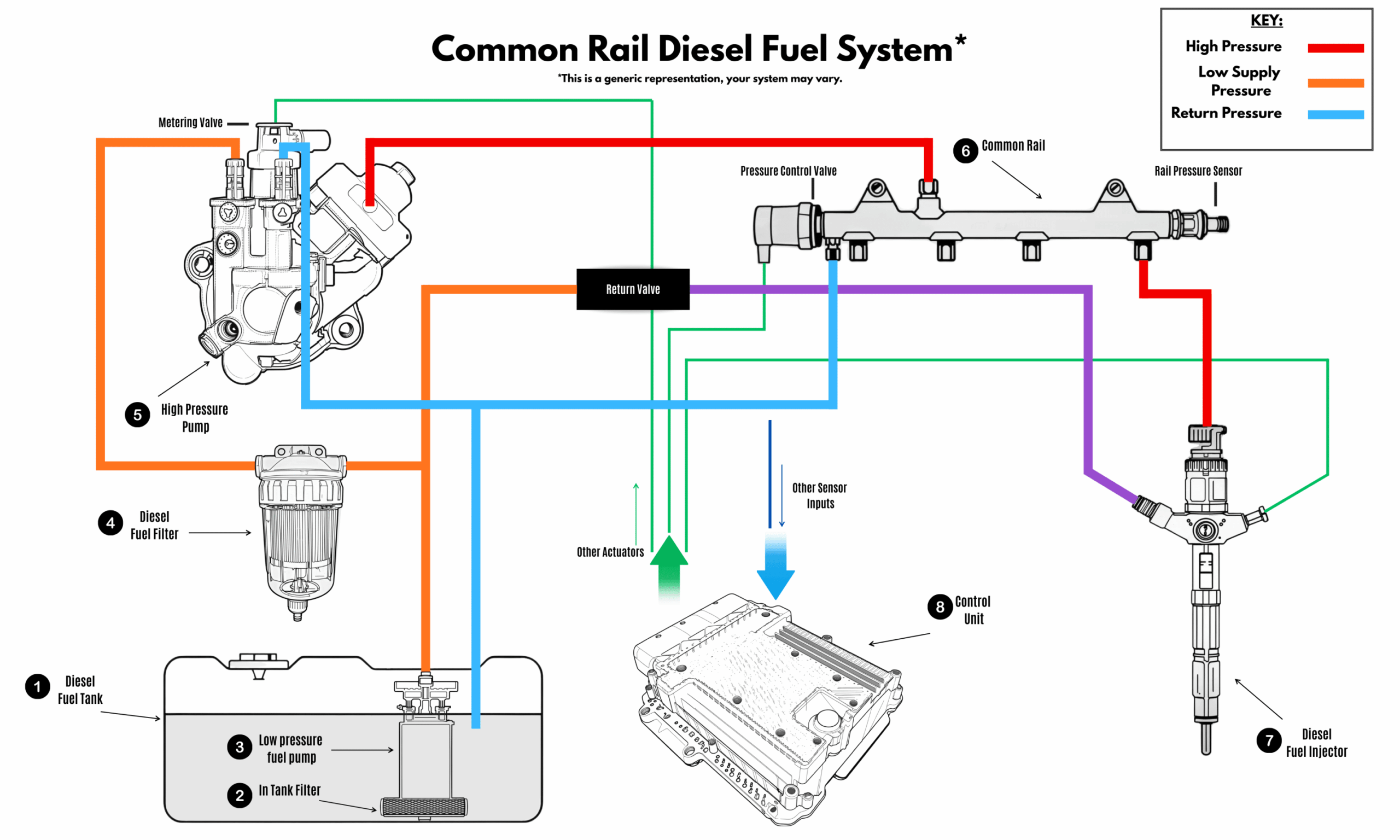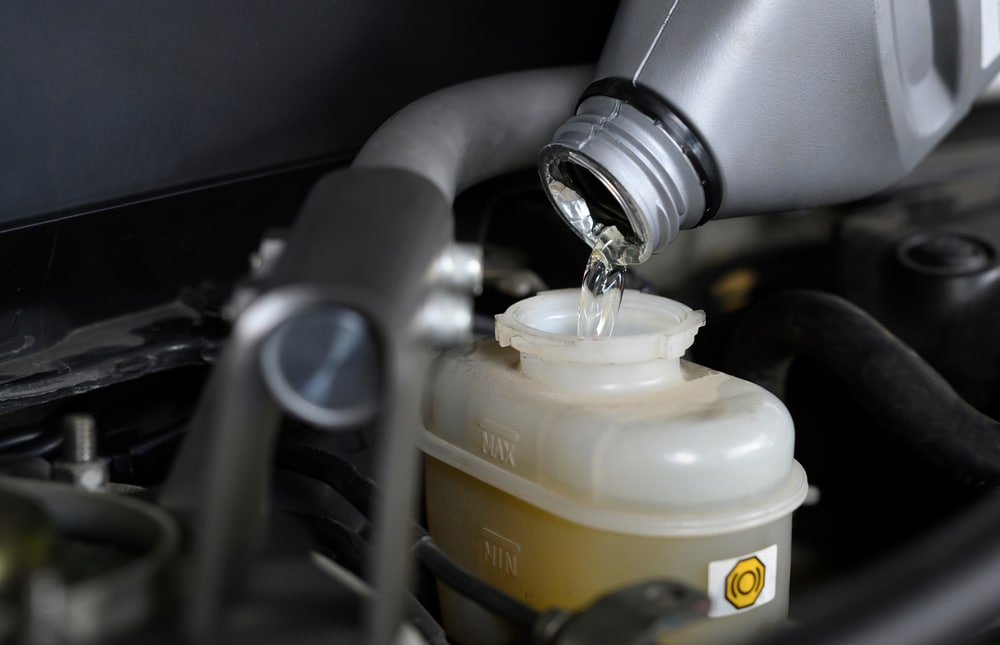How Your Diesel Fuel System Works – And Why Servicing in Northampton Matters
A problem with your diesel fuel system can quickly turn into a repair bill worth thousands.
That’s because it takes care of one of the most critical tasks in your car: moving fuel from the tank to the engine so combustion can occur.
Many modern diesel cars have a common rail diesel fuel system. These operate at the correct pressure and timing, giving today’s diesels their balance of performance, fuel economy, and durability.
But here’s the issue.
Since the fuel system operates with high pressure and accuracy, minor oversights like missing a filter change or misfuelling can quickly become expensive problems.
In this article, you’ll uncover how your diesel fuel system works, the risks of neglect, and why regular servicing at Roade Main Garage in Northampton is one of the most effective ways to avoid high repair costs.
Diesel Fuel System Explained: How It Works
Even though most modern diesel vehicles use a common rail system, they’re not all the same. They will vary slightly depending on the manufacturer.
Yet, the concept remains the same: a single high-pressure rail stores fuel and supplies each injector, ensuring accurate delivery and efficient combustion.
The system is split into two stages:
- Low-pressure stage: Fuel is drawn from the tank, passes through filters, and is delivered to the high-pressure pump. This step provides a stable, clean supply at the correct pressure.
- High-pressure stage: The high-pressure pump compresses the diesel before sending it into the common rail. The rail then supplies injectors, which atomise the fuel into the cylinders at the precise moment required.
In short, the diesel fuel system ensures fuel is delivered clean, pressurised, and with precision.
For reassurance, Roade Main Garage in Northampton can confirm your system setup as part of a diesel service.
Looking Inside the Diesel Fuel System
With the overall operation explained, it’s time to focus on the individual components. Each part supports the process, and combined, they allow your engine to deliver the performance it was built for.

Diesel Fuel System Low-Pressure Side in Detail
Fuel Tank & Low-Pressure Fuel Pump
The journey starts in the fuel tank (part 1 of image). A low-pressure pump (part 3 of image) moves diesel towards the high-pressure stage, ensuring the system has a dependable flow.
Diesel Fuel Filter
Before the diesel reaches high-pressure components, it’s filtered (parts 2 and 4 of image). This process captures dirt and separates water, helping to protect the system from damage and unnecessary repair bills.
High-Pressure System
High-Pressure Pump
Once filtered, diesel fuel reaches the high-pressure pump (part 5 of image), which raises the pressure to extreme levels required for the injection process. This level is around 1800 Bar – thousands of times the pressure of your tyres.
Metering and Pressure Control Valves
Two valves regulate this stage of your diesel fuel system:
- Fuel metering valve: Determines the amount of diesel entering the high-pressure stage.
- Pressure control valve: Controls the pressure within the rail to match the engine’s needs.
Fuel Rail
The common rail (part 6 of image) acts as a pressurised reservoir, holding diesel at high pressure and distributing it evenly to each injector.
Diesel Injectors
Finally, diesel injectors (part 7 of image) atomise the fuel into an ultra-fine mist, delivering it to the cylinders at exactly the right moment.
What’s Unique About the Diesel Fuel System
What may look like a basic fuel supply system is, in reality, a highly advanced design. A few things set it apart:
- Precision with power: The diesel fuel system combines low-pressure delivery with ultra-high-pressure injection, supplying the exact amount of fuel in fractions of a second. The pressures are vastly higher than tyre pressure, allowing diesel to be atomised into a fine spray.
- Accuracy across components: From the fuel pump to the injectors, each part is designed to work with extreme precision. Together, they deliver reliable performance and improved efficiency.
- Contamination risk: Because the system is so precise, even small amounts of dirt or water can cause faults. Following filter replacement schedules and using quality fuel reduces this risk.
Maintained on time, the diesel fuel system supports dependable performance. Without care, however, small issues can develop into significant repair bills, and that’s the last thing you want for your diesel vehicle.
Issues from Neglecting the Diesel Fuel System
Diesel fuel systems operate at high pressure with very fine tolerances, so even small oversights in servicing can result in major repair work. Common problems are:
- Substandard fuel: Poor quality diesel can carry water and debris that corrode critical components like the pump, rail, and injectors.
- Spread of contamination: Once impurities enter, they circulate throughout the system, causing multiple failures over time.
- Filter changes ignored: Diesel fuel filters block dirt and separate water. If skipped, these contaminants pass into the system and damage pumps and injectors.
Compared with the cost of repairing the whole system, replacing a diesel fuel filter is a far more affordable preventative measure.
Another potential hazard is misfuelling. Petrol doesn’t lubricate like diesel and can cause critical components to seize, damaging them in the process. Even starting your vehicle for a split second can cause petrol to contaminate the entire diesel fuel system.
If misfuelling happens, don’t switch on the ignition; immediately arrange for professional assistance.
How Regular Service Protects Your Diesel Fuel System
When properly maintained, the diesel fuel system works seamlessly in the background, but without care, small issues can quickly escalate into costly damage.
Protection is simple if you follow a few key steps:
- Replace your diesel fuel filter at the correct times.
- Use quality diesel to reduce the risk of water and impurities.
- Keep to the recommended servicing intervals.
These preventative measures cost far less than repairing a full system breakdown.
Roade Main Garage offers trusted servicing for drivers in Northampton, Milton Keynes and the surrounding areas to keep diesel fuel systems in excellent condition.
Why Drivers Choose Roade Main Garage, Northampton
Maintaining your diesel fuel system is vital, as is choosing the right garage to carry out the work. At Roade Main Garage, we’ve built a reputation for reliable care and honest advice.
Here’s why drivers trust us:
- 12-month parts and labour guarantee.
- Serving Northampton and Milton Keynes with trusted service.
- Courtesy car options are available for your convenience.
We’re proud of our {{average-rating}}⭐ Google rating from {{review-count}} happy customers, showing the confidence local drivers place in us.
📞 Call 01604 862262 to arrange your diesel service today.
FAQ: Diesel Fuel System
Here are some of the most common questions drivers ask about diesel fuel systems, with clear answers to help you understand how they work and why servicing is essential.
1. How does a diesel fuel system work?
Diesel systems vary, but most modern engines use a common rail design. Fuel is taken from the tank at low pressure, passes through pumps and filters, and is then compressed by the high-pressure pump. It moves into the rail before the injectors atomise it, firing it into the cylinders to allow combustion.
2. How much does it cost to repair a diesel fuel system?
The cost depends on your vehicle and the extent of damage. Replacing the diesel fuel filter is a low-cost preventative step, but neglecting it can lead to far greater expense. Repairs are much more involved once high-pressure components like pumps or injectors are affected.
3. Why is diesel fuel system maintenance important?
Servicing helps protect the high-pressure pump, rail, and injectors from dirt, water, and wear. Replacing diesel fuel filters at the correct intervals lowers the risk of breakdowns, keeps the engine reliable, and avoids expensive repairs.
4. What are common causes of diesel fuel system damage?
The main causes are skipped filter changes, using low-grade diesel, water contamination, and misfuelling with petrol. Even small contaminants can move through the system and create widespread issues.
5. What happens if petrol goes into a diesel tank?
Petrol does not provide lubrication like diesel does. If it enters a diesel system, it can quickly damage the pump and injectors. Even starting the engine for just a moment can push petrol into the rail, lines, and injectors, spreading the problem. If this happens, the safest option is not to start the vehicle and to contact a professional immediately. The tank will need draining and the system checked.
6. What is a common rail diesel fuel system?
This type of system follows a two-step process. In the first stage, fuel moves from the tank at low pressure, passing through pumps and filters before entering the high-pressure pump. The pump then compresses it and sends it into the rail, which stores it under pressure. From there, injectors atomise controlled bursts of diesel into the cylinders at precisely the right time. This approach ensures consistent delivery, efficient combustion, and smoother performance.
If you still have questions about your diesel fuel system, our team at Roade Main Garage in Northampton is here to help.
📞 Call 01604 862262 for expert advice or to book your diesel service.



